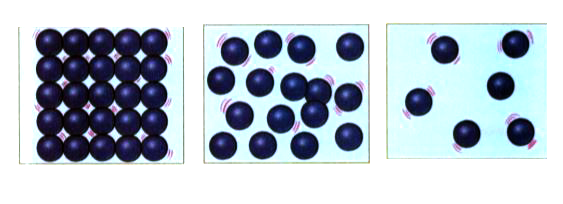Which pair(s) of liquids on mixing is/are expected to show no net volume change and no heat effect?
acetone and ethanol
chlorobenzene and bromobenzene
chloroform and benzene
n-butyl chloride and n-butyl bromide
ΔVmixing=0,ΔHmixing=0⇒ Look for ideal solutions.
Topper's Solved these Questions
- THEORY OF SOLUTIONSBOOK - VMC MODULES ENGLISHCHAPTER - THEORY OF SOLUTIONSEXERCISE - JEE Main (Archive)
57 Videos
- THEORY OF SOLUTIONSBOOK - VMC MODULES ENGLISHCHAPTER - THEORY OF SOLUTIONSEXERCISE - JEE Advanced (Archive)
31 Videos
- THEORY OF SOLUTIONSBOOK - VMC MODULES ENGLISHCHAPTER - THEORY OF SOLUTIONSEXERCISE - LEVEL 1
75 Videos
- THE SOLID STATEBOOK - VMC MODULES ENGLISHCHAPTER - THE SOLID STATEEXERCISE - EXERCISE-J
10 Videos
- THERMOCHEMISTRYBOOK - VMC MODULES ENGLISHCHAPTER - THERMOCHEMISTRYEXERCISE - JEE ADVANCED (ARCHIVE)
31 Videos
Similar Questions
Knowledge Check
Assertion : The difference between ΔHandΔU is not significant for systems consisting of only solids and/or liquids.
Reason : Solids and liquids do not suffer any significant volume changes upon heating.AIf both assertion and reason are true and reason is the correct explanation of assertion.BIf both assertion and reason are true but reason is not the correct explanation of assertionCIf assertion is true but reason is false.DIf both assertion and reason are false.
Describe one experiment to show that liquids expand on heating.
View SolutionWhich pair would not be expected to form precipitate when solution are mixed?
View SolutionWhich is //are likely to show inert pair effect ?
View SolutionWhich of the following pair of solutions can be expected to be isotonic at the same temperature ?
View Solution
a.Identify which of the above pictures shows particle arrangement in solids, liquids and gases. Write in the space below each picture.
b. Which state of matter would you expect to show a fixed volume?
c. Why do you think gases can flow whereas solids cannot?
View SolutionWhich is showing accurate pairing ?
View SolutionWhich of the following pair (s) of ions would be expected to form precipitate when dilute solutions are mixed?
View Solution
